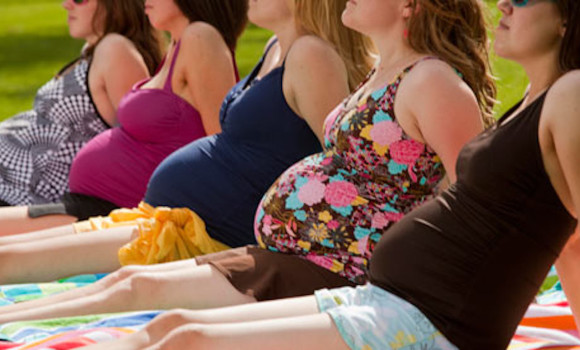Is a first baby usually early or late?”
A due date based on a 280-day pregnancy is pretty much an educated guess, and a lot of factors can affect it. One factor a mom’s genetic heritage:a study of 14,000 Danish pregnancies found that the average spontaneous labor was 282 days from the first day of a woman’s last period, and babies of first-time moms averaged a 288-day gestation — a full eight days later than a due date based on a 40-week timetable would have predicted. And a large study in the UK found that first babies of women of Asian or African ancestry were more likely to be born in the week before a due date. So given the strong genetic component of pregnancy length, though, your best bet is to ask your mom how long her pregnancies were- if hers were longer or shorter than usual, odds are yours will be, too.
Your cycle length matters, too- the 40-week pregnancy timetable assumes a 28-day cycle with ovulation on the 14th day of the cycle, but if your cycle is longer or shorter then a pregnancy dated by the first day of your last period would appear to be longer or shorter. And other studies have found that you’re more likely to deliver early if you’re having multiples, if you’re having a boy, or if you smoke.
And don’t forget the most important factor: the baby. As the old saying goes, “only a baby knows when it’s ready to be born,” and newer research appears to show that labor is triggered when the baby’s developed lungs emit a hormone signal to mom’s brain that baby is ready to be born and breathe on land. So as precisely as you might try to calculate, your baby might have other ideas.



Early or late?